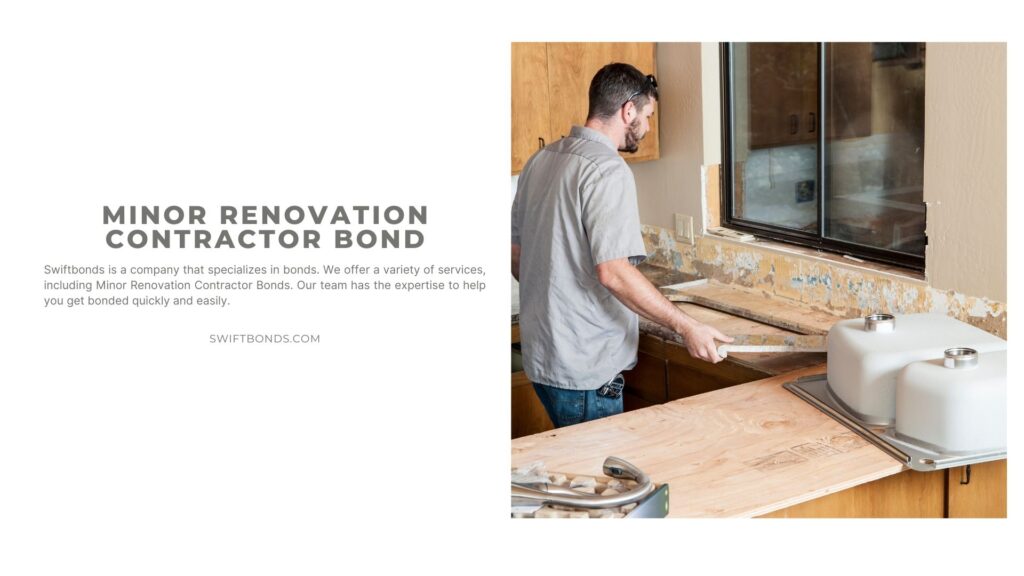

Get An Instant Quote on Newark, DE-Minor Renovation Contractor ($10,000) Bond Now
What is a Contractor Bond?
A construction bond is a contract enforceable by law that protects against financial loss due to contractor's failures. By submitting one, the party managing the work states they can complete it according to contractual specifications and standards.
Need a Newark, DE-Minor Renovation Contractor ($10,000) Bond?
Swiftbonds provides a variety of bond types to meet the needs of our clients. Our bonds are affordable and easy to apply for. We offer a wide range of coverage options with flexible terms and conditions so you can get the right bond for your situation.
If you need help finding the right type of bond or have any questions about our products, please contact us at (913) 214-8344 or email [email protected]. We’re here to answer all your questions!
Click this now and find out more information about our company!


Why is the Minor Renovation Contractor ($10,000) Bond required?
Businesses must purchase a bond to activate their license or permit. This guarantees that if the business fails to comply with licensing and permit laws, they will be compensated by the surety company for any damages incurred due this negligence. Read a New Castle, DE-Class C Building Contractor ($25,000) Bond.
How does a Minor Renovation Contractor ($10,000) Bond work?
Getting a Minor Renovation Contractor ($10,000) Bond means you agree with the entity requiring it, called the obligee. Your surety company agrees to cover for you in case your clients or public make claims against their contract and need payment from your bond. If there’s ever any problems on either side of this agreement, only then will we get involved so that both parties can be satisfied. Find a New Castle, DE-Class B Building Contractor ($50,000) Bond.
How much does a Minor Renovation Contractor ($10,000) Bond cost?
Minor Renovation Contractor ($10,000) Bond is a type of surety bond that varies in cost and depends on the credit score of the applicant. Sometimes, personal or business financials may be required depending on what surety amount is needed for bonding purposes.
Can I get a Minor Renovation Contractor ($10,000) Bond with bad credit?
Swiftbonds offers a wide-range of approvals, regardless of credit history or bad credit. One key factor in our success is that we are able to work with 99% of applicants who have been turned down elsewhere due to their poor financial standing. Our knowledgeable underwriting staff will make sure you get the lowest possible price for your bond no matter what personal circumstances may be preventing you from getting approved for other companies' bonds. See a New Castle, DE-Class A Building Contractor ($150,000) Bond.
How to get your Minor Renovation Contractor ($10,000) Bond?
Would you like to know the first step in getting your Minor Renovation Contractor ($10,000) Bond? It's super easy! Fill out our quick online application and get a no obligation quote today. Our Underwriters will contact you within an hour of submission, or come chat with them on the phone for help applying. Here's a Newark, DE-Minor Renovation Contractor ($25,000) Bond.





